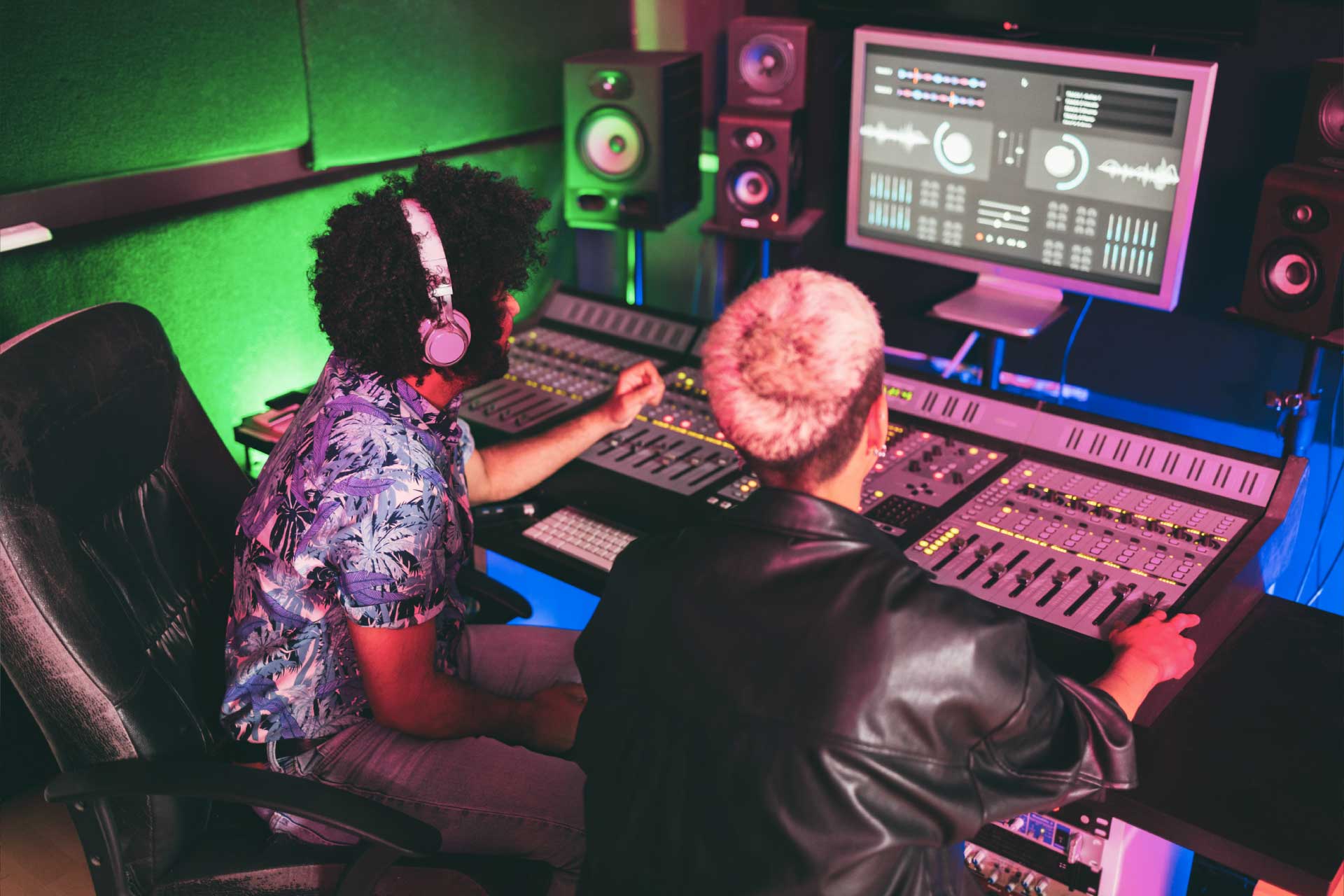
We have spoken to musician and blockchain expert, Dr Jennifer Davies, to find out more about the Management School’s role to put the Liverpool City Region (LCR) at the forefront of music innovation, as part of the MusicFutures Creative Cluster.
The University of Liverpool is leading a new national Creative Cluster for the music sector, funded by the Arts and Humanities Research Council, part of the UK Research and Innovation.
MusicFutures is an ambitious five-year programme which will position the LCR as a global hub for innovation, sustainability and research and development (R&D) in music.
With support from Liverpool John Moores University (LJMU), MusicFutures will catalyse new forms of collaboration between academia, industry, local government and the creative sector.
The cluster unites over 20 regional partners, key industry bodies (UK Music, LIVE, UKIPO) and several national challenge partners to drive a diverse programme of R&D, intellectual property development and skills training to drive economic growth.
Building on our city’s storied past, the programme brings together researchers from eight disciplines across the Faculty of Humanities and Social Sciences to deliver a truly interdisciplinary response to the challenges and opportunities facing the sector in music production, policy, technology and entrepreneurship.
At the Management School, the project provides a platform for researchers and educators to shape the future of business models, talent development and growth, through evidence-based insights and collaboration with industry stakeholders.
Supporting creative entrepreneurship and business growth
One of the key areas focuses on supporting entrepreneurs across LCR’s music ecosystem.
Through bespoke business development support programmes and mentorship, the School plans to work with early-stage music ventures and freelancers, to build sustainable, scalable models in an increasingly competitive market.
“Nurturing creative entrepreneurship is vital to ensure the music industry can evolve sustainably,” said Jennifer.
“We’re focused on equipping early-stage ventures and professionals with the business skills, networks and strategic thinking, they need to thrive in a fast-changing landscape.
“As more artists forge independent careers, we’re also equipping them with essential project management skills, supported by our academic accreditation providers, the Association for Project Management.”
Advancing inclusive talent and skills development
A second major strand centres on designing talent development initiatives to foster widening participation in the music industry.
This involves working with underrepresented groups to reduce access barriers and develop leadership and business capabilities for emerging music professionals.
“If we want a future-facing music industry, we need to invest in talent that reflects the diversity of our communities across the LCR.
“Education has a key role to play in removing barriers and opening meaningful opportunities in the creative sector.”

Driving research into sustainable business models
The School also draws upon expertise from its Centre for Sustainable Business and leading research into new models for music organisations, labels and venues.
With pioneering investigations on how digital technologies, changing consumer behaviour and Environmental, social and governance (ESG)1 priorities are reshaping the way value is created and shared in the music industry, these insights will inform sector-wide strategies and policy recommendations.
“We are combining rigorous research with close collaboration within the sector.
“By working with colleagues across the Faculty of Humanities and Social Sciences and with our institutional partner, LJMU, we are developing sustainable frameworks to guide the future of music production, particularly in the live sector.
“Other creative industries, like film and TV, have already established sustainability standards, such as BAFTA’s ALBERT.
“Through MusicFutures, we aim to create similar benchmarks for the UK music industry and lead the way globally.”
Liverpool as a music innovation leader
The MusicFutures project places the Management School at the heart of a national programme, with the potential to redefine how academic research supports the creative economy.
By helping position the LCR as a leader in music innovation, the project seamlessly aligns to the School’s broader mission to generate impactful, interdisciplinary research that benefits society and the economy.
“MusicFutures is a chance for Liverpool to show how research, industry and education can come together to shape the future of music.
“This project strengthens our School’s commitment to supporting the creative economy through impactful research and practical business education.
“We are building something rooted in place with global relevance – a truly local-to-global approach that Liverpool has always done well and must be supported to continue.
“With the right frameworks, support and partnerships, the UK can lead the world in creating an innovative, sustainable and fairer music industry.”
1 ESG is a framework used to evaluate a company's sustainability and ethical performance.
 |
Lecturer in Project Management |